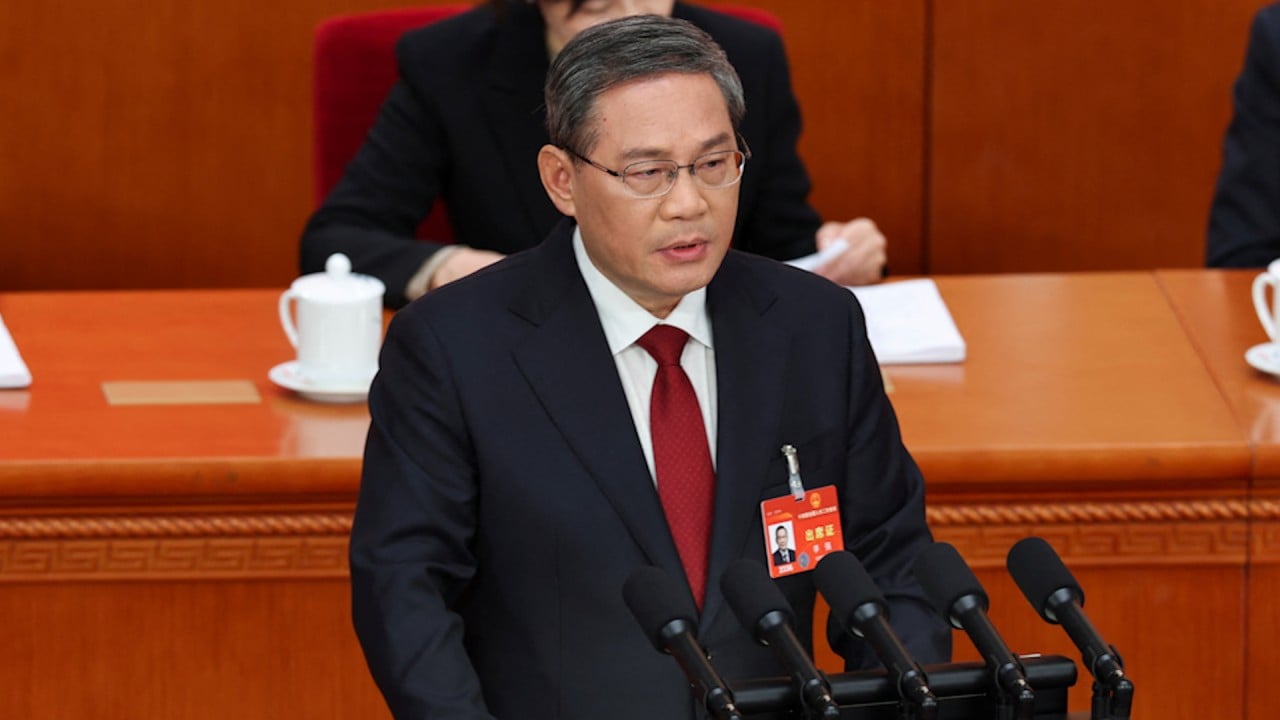
‘Two sessions’ 2024: China to revise defence education law to promote patriotism and support for military
- Premier Li Qiang says Beijing will help unity ‘between the military and the government, and between the military and the people’
- Official signals Cybersecurity Law amendment is advancing as Beijing tightens data security measures and reforms cyberspace regulation
The decision-making body of the Chinese legislature has pledged to this year advance revision of its defence education law, which mandates public awareness and education in support of the military.
He highlighted the revision of the National Defence Education Law as one of the legislative tasks of the year, with the aim of “modernising China’s system and capacity for national security”.
The law, adopted in 2001, calls for defence education in a wide range of organisations – including schools, enterprises, and publication sectors – and is aimed at “promoting patriotism” and consolidating the “defence structure”.
A minor revision was made in 2018 to change the wording of an article.
Proposals relating to the amendment have not been released. But alterations could include adding the definition of “defence education” and details absent in the existing statute.
China spy agency renews foreign cyber intelligence warning after data breaches
Beijing urged the public to support national defence in its tone-setting government work report this year, a call that did not appear in the report last year.
Premier Li Qiang on Tuesday said the government would provide support to “consolidate the unity between the military and the government, and between the military and the people”.
He also stressed the need to raise public awareness about national defence while strengthening defence abilities and readiness.
China has pledged to transform the People’s Liberation Army into a “world class” force on par with the American military by 2049.
But growing friction with the United States and China’s neighbouring countries concerning nearby waters has prompted Beijing to speed up military development.
On national security, Zhao also signalled there would be progress for the pending amendment of the Cybersecurity Law, which governs the storage and transfer of personal information and important data by network operators.
The country’s internet watchdog proposed to expand the severity and scope of penalties for data protection violations in 2022, five years after the adoption of the law. But the proposal is yet to be deliberated and passed by the NPCSC.
The suggestions came as Beijing tightened data security measures and overhauled cyberspace regulation amid what it sees as higher espionage risks from the US and its allies, as well as widespread abuse and leaks of personal data.
China also amended the Counterespionage Law last year, which listed cyberattacks by a “spying entity or its surrogate” as an act of espionage.


